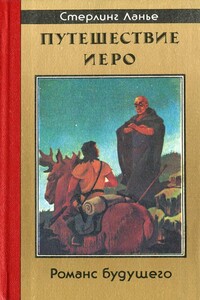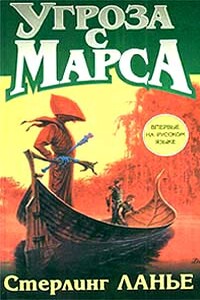Hiero's Journey | страница 77
Actually, it took only four tries. She did not speak Metz or Inyan of the western type, or understand the silent sign language. But when Hiero tried batwah, the trade language of the merchants, she smiled for the first time and answered. Her accent was very odd, if not downright bad, he thought, and many of her nouns were utterly strange to him. He guessed, rightly, as it proved, that he came from a place at one end of a very long trade route and that she was from far off, either near or at its other extremity.
“What kind of man are you?” was her first remark. “You look something like a slaver, like those who sold me, but you ride that wonderful fighting animal, and you got me away from those pale-skinned barbarians. But you owe me nothing. Why did you do it?”
“Let’s have a few facts first from you,” he countered. “What’s your name and who are you and where do you come from?”
“I am Luchare,” she said. Her voice was rather high-pitched but not nasal. She spoke with pride, not arrogance, just pride. I am who I am, was the unspoken message, that of one who valued herself. Hiero liked her, but kept that fact to himself.
“Very interesting, Luchare,” he said, “and a pretty name, no doubt of it. But what about my other questions? Where is your home? How did you get here?” And what am. I to do about you? was the unspoken one.
“I ran away from my home,” she said. Her voice, like his, was now flat and emotionless, but she watched him carefully, her eyes bright in the firelight. “My home is far off, far beyond this sea. I think there.” She turned and pointed unerringly to the northwest, in the direction of the Republic.
“I think it unlikely,” the priest said in a dry tone, “because that’s where I come from, and I never heard of anyone like you before. But don’t worry about direction,” he added in a voice he tried to soften; “that’s not important. Tell me about your country. Is it like this? What are your people like? You called those white people who set the birds on you ‘barbarians.’ That’s an odd term for a slave girl to use.”
Their conversation, it may be added, was not at first this smooth and continuous. There were many gaps, fumblings for alternate terms, corrections of pronunciation, and explanation of new words. But both were highly intelligent and quick at adapting. As a result, it went at an increasing rate of progress.
“My people are a mighty and strong one,” she said firmly. “They live in great cities of stone, not dirty huts of hide and leaves. They are great warriors too, and not even the big, homed one could have saved you as he did this afternoon if it had been they you fought.”



